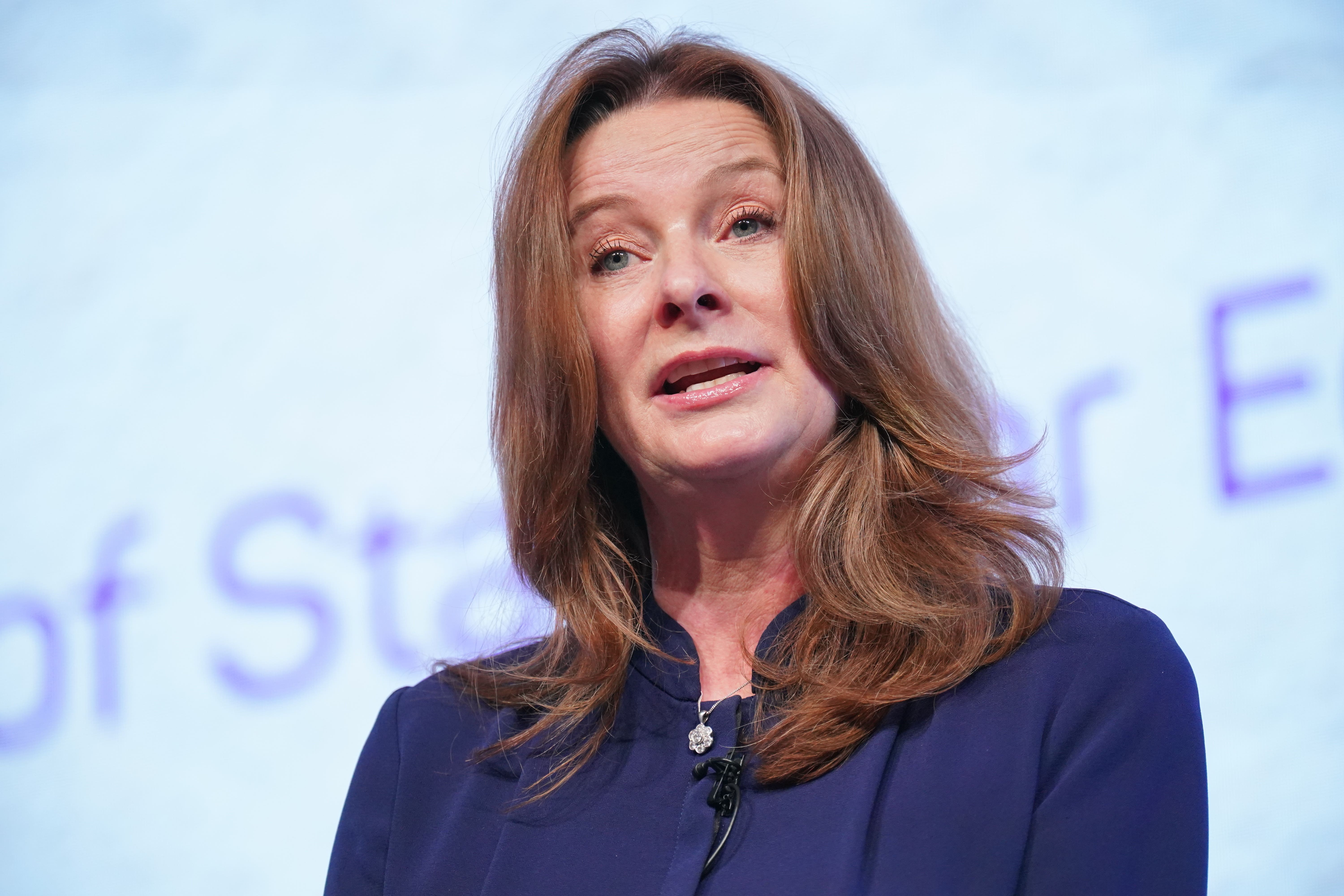Teachers must meet minimum service levels in schools to ‘protect children from strike action’, government says
Teaching unions attacked the proposal as ‘shameful’

Your support helps us to tell the story
From reproductive rights to climate change to Big Tech, The Independent is on the ground when the story is developing. Whether it's investigating the financials of Elon Musk's pro-Trump PAC or producing our latest documentary, 'The A Word', which shines a light on the American women fighting for reproductive rights, we know how important it is to parse out the facts from the messaging.
At such a critical moment in US history, we need reporters on the ground. Your donation allows us to keep sending journalists to speak to both sides of the story.
The Independent is trusted by Americans across the entire political spectrum. And unlike many other quality news outlets, we choose not to lock Americans out of our reporting and analysis with paywalls. We believe quality journalism should be available to everyone, paid for by those who can afford it.
Your support makes all the difference.The Government has announced plans to introduce minimum levels of service in schools during strikes by teachers, sparking fury from unions.
Education Secretary Gillian Keegan said strikes by teachers over pay in the past year were some of the most disruptive on record, with 25 million days lost.
Teaching unions attacked the announcement as “shameful”, accusing the Government of attempting to impose further restrictions on the democratic freedoms of teachers.
The Government launched a consultation on Tuesday, inviting views on issues such as priority attendance for vulnerable children, exam groups, children of critical workers and the use of rotas for strikes lasting five days or more.
The aim was to have minimum service levels in place by the next academic year.
The Education Secretary said: “Keeping children in school is my number one priority. Last year’s school strikes were some of the most disruptive on record for children and parents, with 25 million cumulative days lost, alongside the strike action that badly affected students in colleges and universities.
“We cannot afford a repeat of that disruption – particularly as young people continue to catch up from the pandemic.
“Whilst I know many schools and colleges worked really hard to keep children and young people in face-to-face education during strikes, we must make sure that approach is applied in every school, in every area of the country.”
The announcement followed discussions between Ms Keegan and trade unions to explore voluntary agreements in schools and colleges.
The Education Department said that while the talks were constructive, not enough progress was made to ensure protections for children and young people would be in place for the next academic year.
“The Government has therefore taken the step to open the nine-week consultation to hear the views of parents, young people and the education sector on how best to ensure minimum service levels in schools, colleges, as well higher education institutions,” a statement said.
Daniel Kebede, general secretary of the National Education Union, said: “The attempt to impose further restrictions on our democratic freedoms is shameful. This Government wants to be tough on strikes, but not on the causes of strikes.
“We have an education system on its knees. A deep recruitment and retention crisis, rocketing workloads and falling pay, and thanks to underfunding we have the largest primary class sizes in Europe and secondary class sizes are the highest since records began more than 40 years ago.
“This is clearly unsustainable, but the Government is indifferent to the enormous challenges facing schools and colleges. The attempt at dialogue was never meaningful. It was disingenuous and cynical.
“The end of talks was briefed out to the press by Number 10 before the talks ended. Rishi Sunak always intended to implement this draconian legislation without consent or mandate.”
Dr Patrick Roach, general secretary of the NASUWT, said: “The Government continues to ignore the fact that it is impossible to secure minimum service entitlements for pupils in an education system so neglected and underfunded, instead opting to aggressively quash criticism with this inflammatory policy.
“The Government is once again demonstrating its contempt for teachers, at a time when they should be listening to the concerns of the profession and facing up to the crisis in recruitment and retention they have created.”
Paul Whiteman, general secretary of school leaders’ union NAHT, said: “It could not be clearer that the Government entered into talks with the profession about minimum services levels in incredibly bad faith.
“Having set initial proposals that no union could agree to, they have collapsed negotiations by briefing the media first and without ever coming back to the table. They have shown they cannot be trusted.
“We now have proof that the Government have never been serious about getting the buy-in of the profession – this has always been a hostile act and an attack on the basic democratic freedoms of school leaders and teachers that they are determined to force through.”